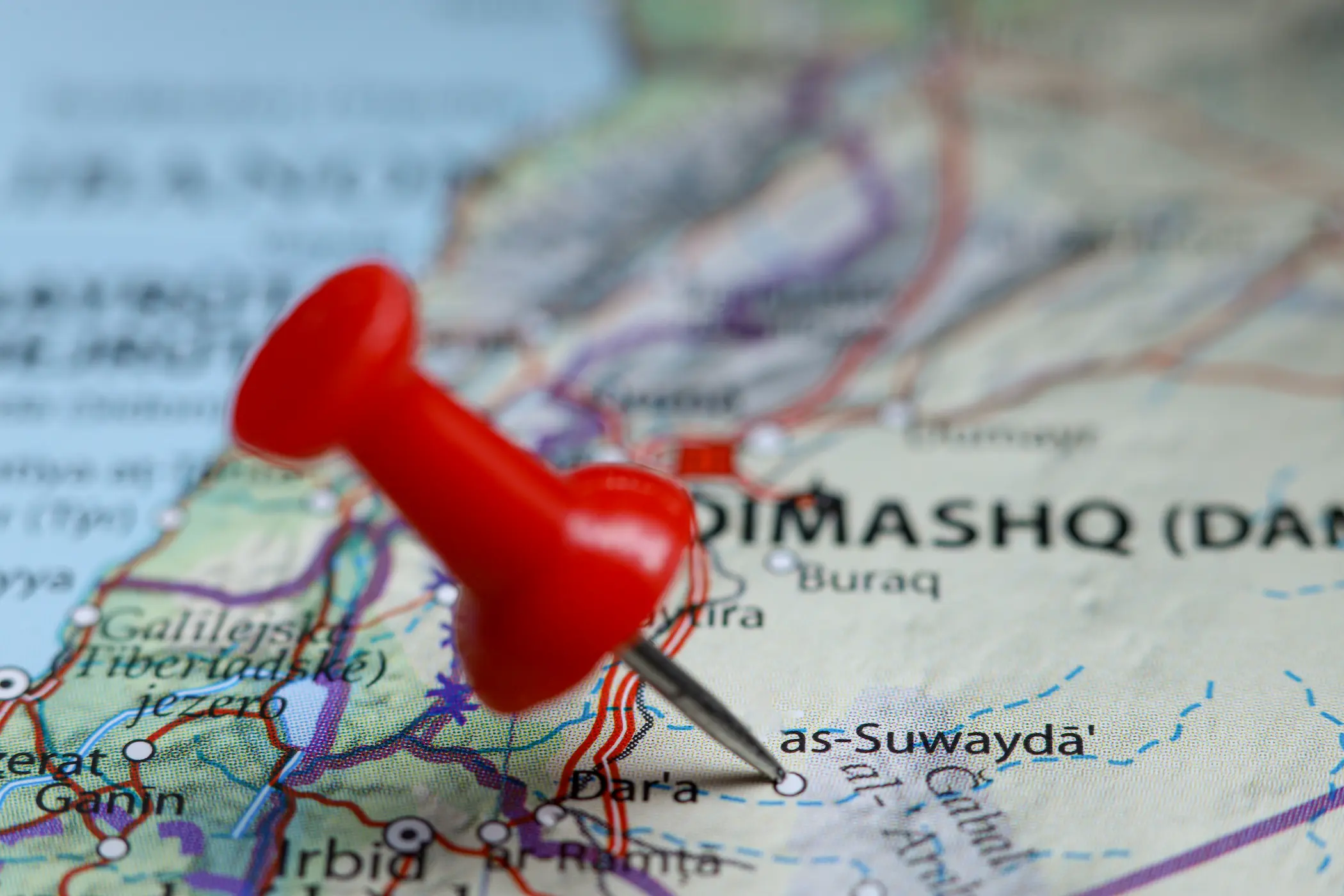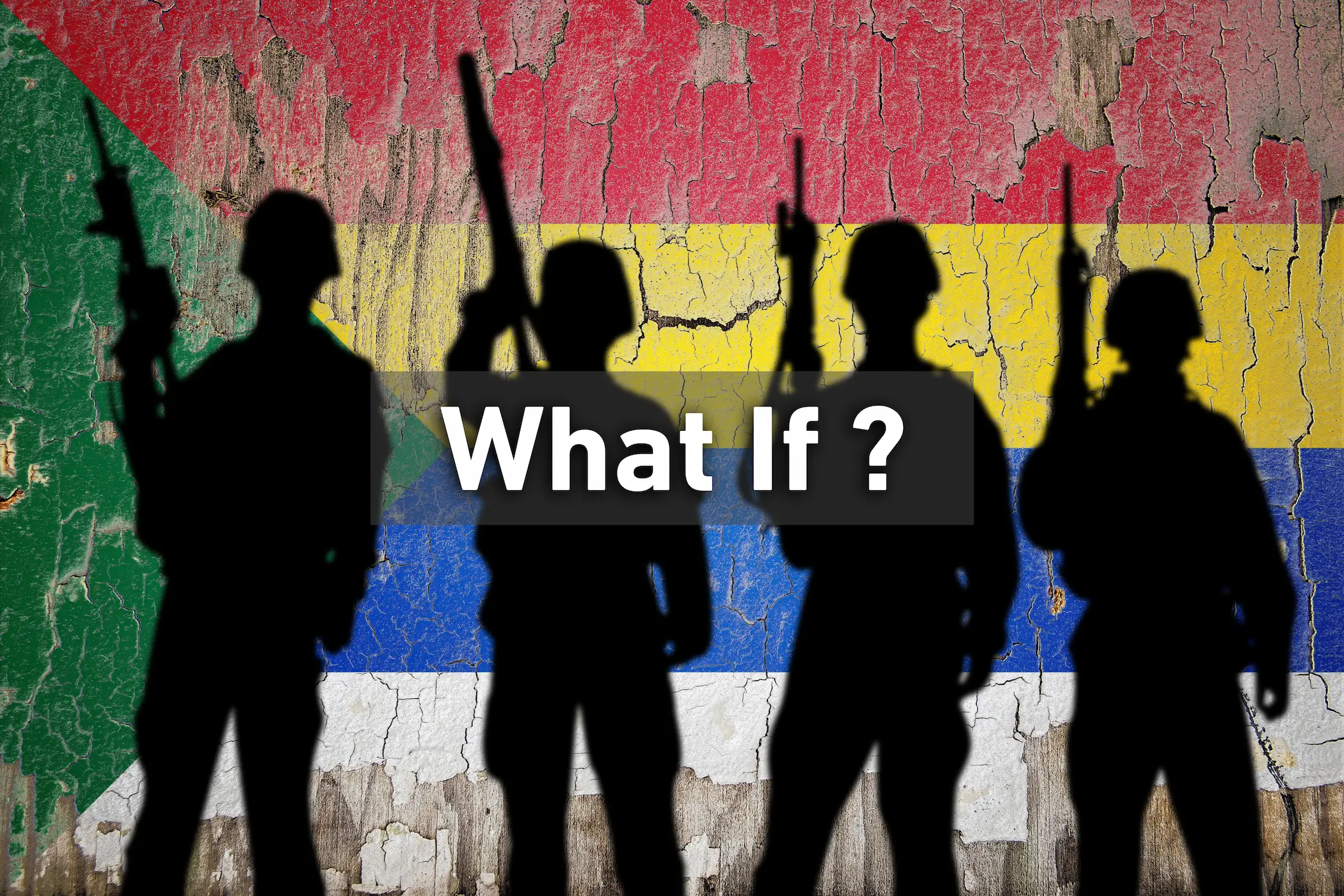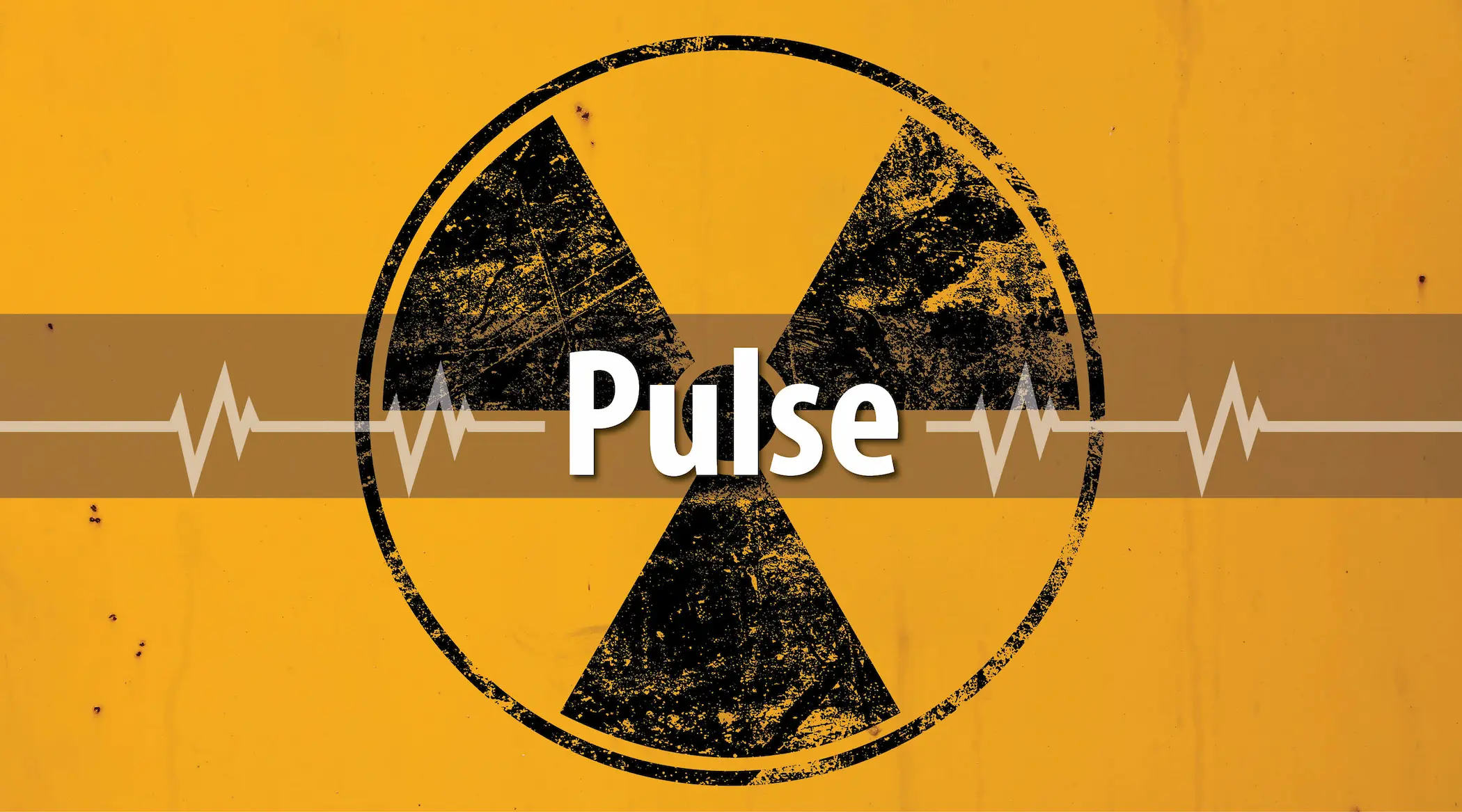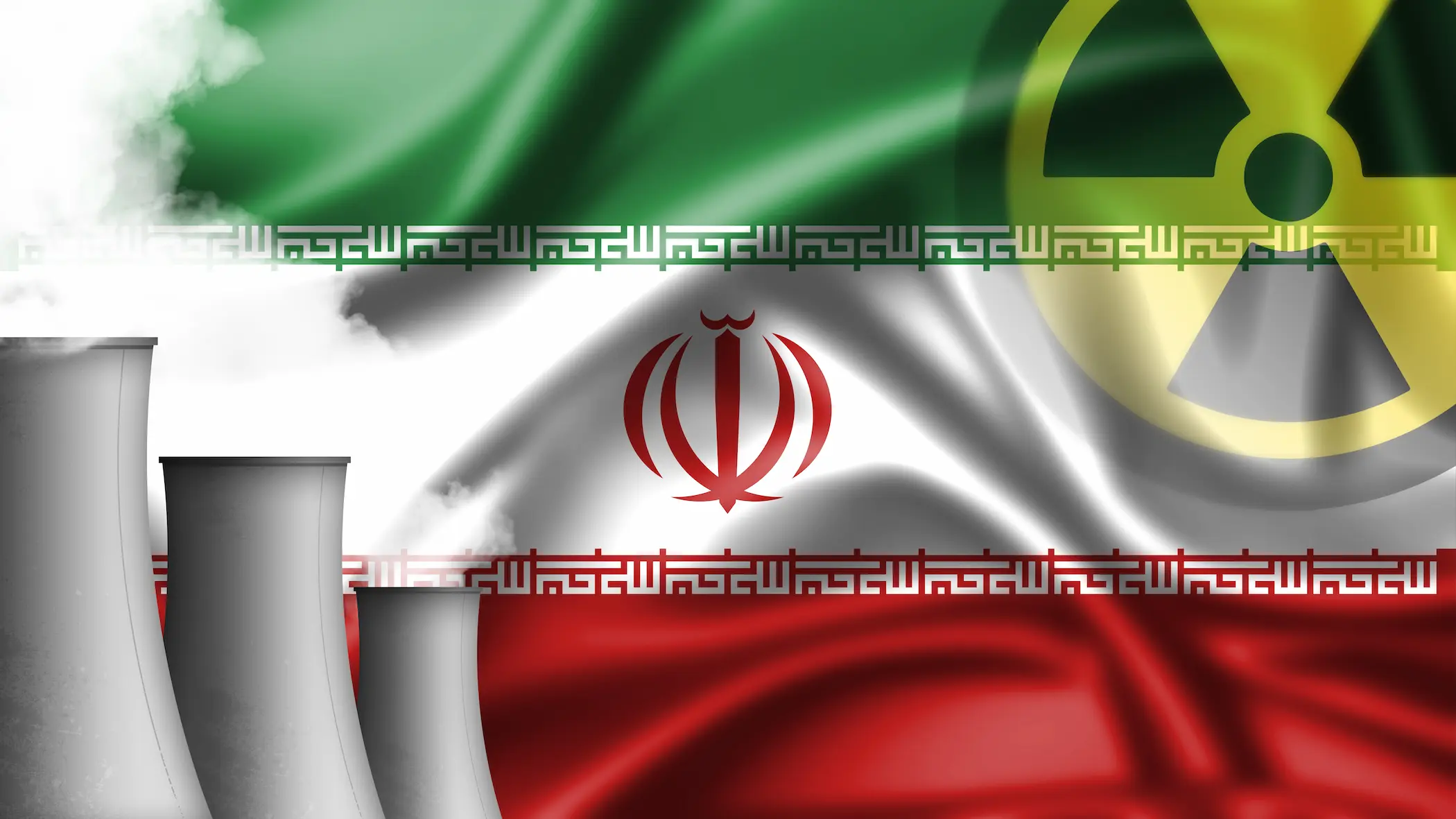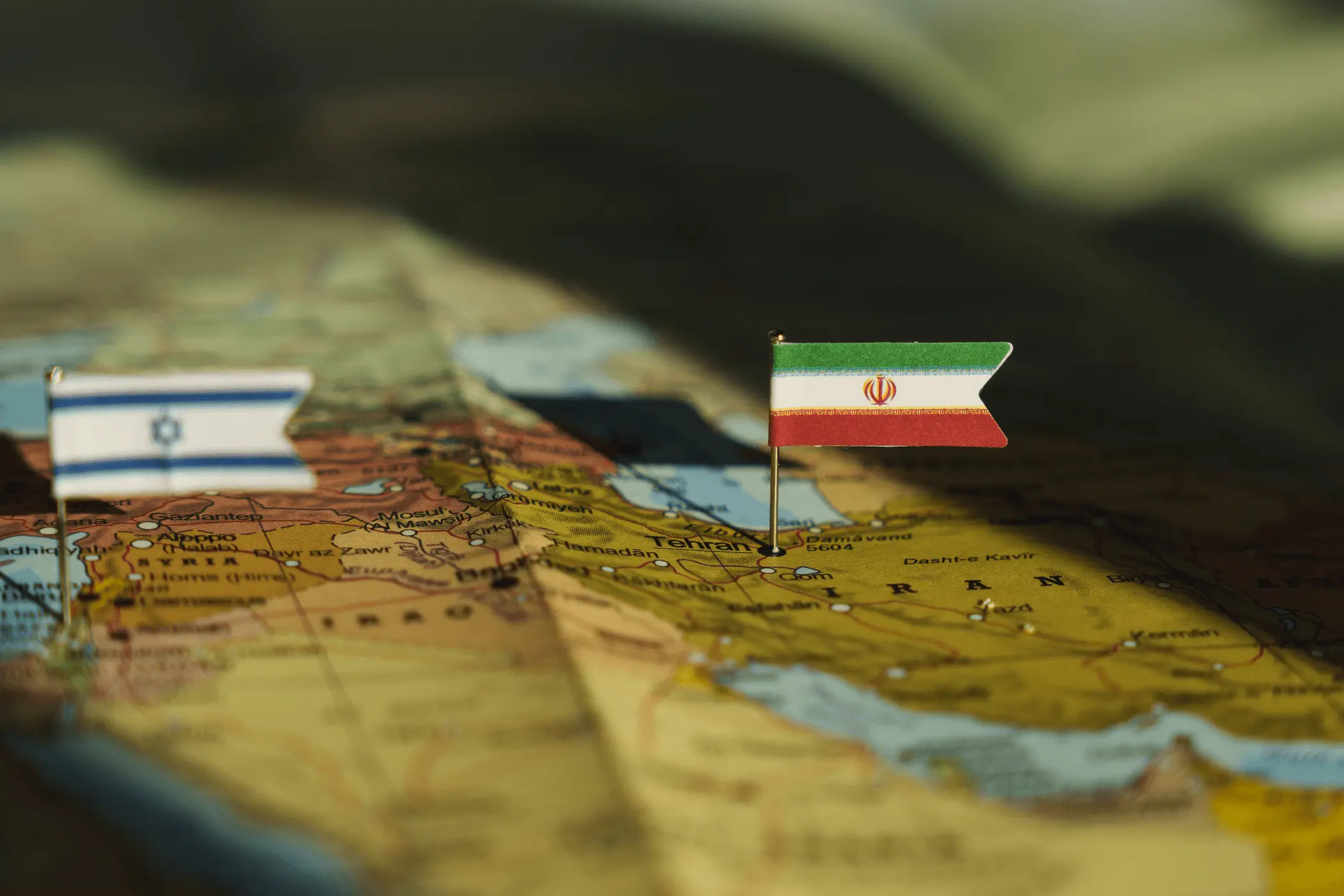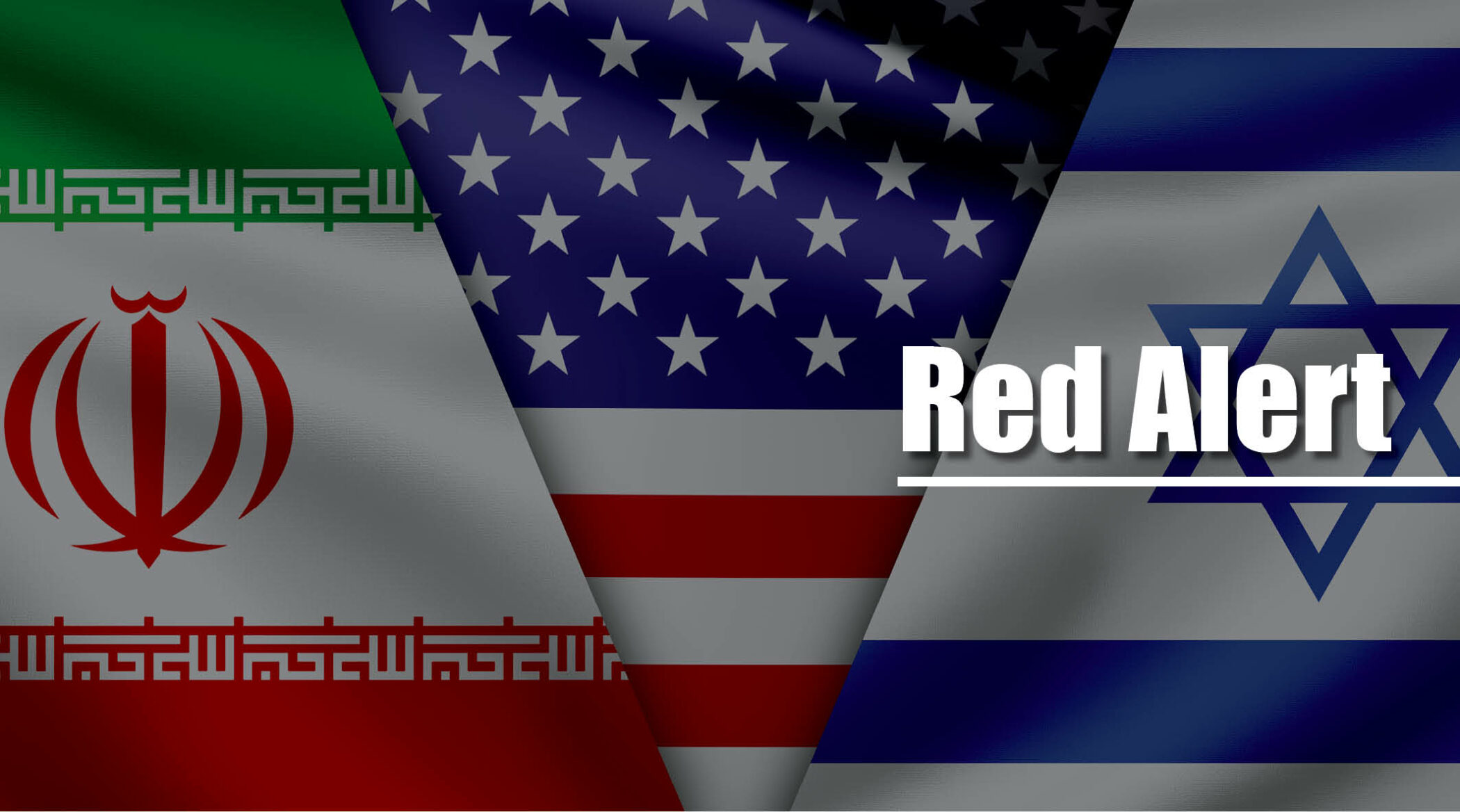23 Jul 2025
Could As-Suwayda Reshape the Calculations of the Syrian Democratic Forces?
With the fall of Bashar al-Assad's regime in December 2024, Syria entered a pivotal political turning point, ushering the country into a new phase. Ahmad al-Sharaa assumed the role of interim president, and this transitional period has been defined by intense efforts to restore security and stability, unify the divided armed factions, and address the growing humanitarian needs nationwide. Against this shifting backdrop, the southern governorate of As-Suwayda, home to a Druze majority, emerged as a strategic hot spot of tension. Recent military developments in the region have taken on significant dimensions, potentially impacting the future of the Syrian Democratic Forces (SDF) in the country's northeast.
17 Jul 2025
What If: As-Suwayda Sought Independence?
As-Suwayda has emerged as a profoundly complex arena amid the sweeping transformations reshaping Syria following the fall of the Assad regime and the formation of a new centralized transitional government. Within this volatile context, calls for self-determination from segments of the local Druze community have gained traction.
There are four critical fault lines worth exploring: the acute internal fragmentation of the Druze polity; the ideological and constitutional dissonance between local autonomy demands and the centralized architecture of the new Syrian state; the near-total economic collapse of the province; and the intensity of regional entanglement that constrains meaningful sovereignty.
15 Jul 2025
Pulse: Nuclear Risk in the Middle East
This Pulse survey, conducted in June 2025, explores perceptions of nuclear threats in the region, including the likelihood of nuclear events, levels of preparedness, and the need for collective emergency response. The findings offer insights into how geopolitical uncertainty is shaping public concerns about nuclear risks.
When asked about the likelihood of a nuclear event occurring in the Middle East within the next 10 years, the majority of respondents placed the probability between high (41%) and moderate (41%). Only a small minority believed such an event is unlikely (16%) or ruled it out entirely (3.1%). Indicating that a potential nuclear event is no longer seen as a distant possibility, but rather as a plausible risk shaped by current geopolitical dynamics and regional instability.
In response to the survey question on the most likely cause of a nuclear fallout event, participants felt that a nuclear war was the most likely cause (46%) over a nuclear reactor malfunction (38%). While historical incidents suggest that reactor malfunctions have been more frequent, respondents seem more preoccupied with the threat of nuclear war, likely influenced by ongoing geopolitical uncertainty in the wake of recent conflicts, including the now-concluded Iran-Israel War. Cyberattacks, although technically plausible, were considered less likely (13%), again perhaps due to comparison with the more immediate risks of war or malfunction. Meanwhile, terrorist attacks were seen as the least likely (4.2%) cause, reinforcing the perception that threats from rival states pose a greater nuclear risk than those from non-state actors.
When asked whether the Middle East should establish a joint nuclear emergency system, the majority of respondents (91%) supported regional cooperation, reflecting concerns over rising tensions and the limited capacity of some states to respond independently. A small minority (9%), however, opposed a fully inclusive system and favoured cooperation among select countries. Suggesting that those respondents perceive certain states as more vulnerable, or more responsible, than others, implying a belief in differentiated eligibility for participation. Ultimately, this response pattern may also highlight underlying perceptions of disparity among regional states and a reluctance to include perceived "free riders" in collective security efforts.
In response to whether the Middle East is prepared for a nuclear malfunction or cyberattack, the majority of participants (76%) expressed a clear sense of unpreparedness. With remaining respondents believing that the Middle East is somewhat (12%) or fully (12%) prepared. The strong emphasis on lack of preparedness reflects a prevailing sense of concern or fear among respondents. This sentiment is further reinforced by earlier responses, particularly the widespread support for establishing a joint nuclear emergency system, indicating that many view regional cooperation as essential to compensate for individual state limitations in crisis response.
When asked about the region’s preparedness for a potential nuclear war, an even larger share of respondents (87%) indicated that the Middle East is not equipped to handle such a scenario. Compared to the previous question on nuclear malfunctions and cyberattacks, the heightened perception of unpreparedness here reveals which category of threats weighs more heavily on respondents’ minds. This contrast suggests that nuclear war, in particular, is seen as a more pressing and dominant concern, likely due to its catastrophic scale and links to ongoing geopolitical instability in the region.
PULSE is a data-driven series that visualizes public sentiment on trending regional and global issues, curated and edited by the Al Habtoor Research Centre Early Warning Programme’s Senior Researchers Habiba Diaaeldin and Ahmed El Saeid.
The findings presented are based on data collected through social media polls and online forms distributed via email. While efforts are made to ensure a broad and diverse sample, the results reflect the views and opinions of respondents and should not be interpreted as representative of the entire population or Al Habtoor Research Centre.
13 Jul 2025
From Isolationism to Intervention: Trump’s MENA U-Turn
The inauguration of Donald Trump as the 47th president of the United States for his second term took place on Jan. 20, 2025. Trump outlined a wide-ranging agenda that blends traditional conservative values. Notably, he signed 26 executive orders on Inauguration Day, which is the highest number by any U.S. president to sign on that day. Trump’s second-term agenda focuses mainly under the banner of “Making America First,” “retribution,” and “law and order.” He aimed at aggressively reshaping the Federal Government, restoring hardline policies from his first term, and shifting America’s global role through protectionism and reduced international engagement.
Trump had emphasised avoiding foreign wars and promoting a non-interventionist foreign policy, focusing instead on border security and economic growth. He opposed “endless wars” and advocated reducing the U.S. military presence abroad. He repeatedly stated that the U.S. should avoid costly wars in the Middle East that lack clear American interests, using slogans like “We are not the world’s policeman” and “End the endless wars.” He sharply criticised previous administrations for prolonged military engagements in Iraq, Afghanistan, Libya, and Syria. However, despite these promises made during his 2024 campaign, Trump’s actions in office have diverged significantly from his non-interventionist stance.
13 Jul 2025
Iran’s Enriched Uranium: Potential Flashpoint for Renewed Conflict
Recent military strikes on Iranian nuclear facilities have reignited global concerns over Tehran’s nuclear ambitions. Over 12 days, the region witnessed a direct military confrontation between Iran and Israel, accompanied by U.S. airstrikes on critical sites in Natanz, Fordow, and Isfahan. Iran responded by launching retaliatory attacks on the Al Udeid Air Base in Qatar.
While Washington declared the “complete destruction” of Iran’s nuclear infrastructure, subsequent assessments suggest these operations fell short of their strategic goals. Key elements of the Fordow facility, including vital centrifuge systems, remained partially operational, preserving a significant portion of Iran’s nuclear capability.
Growing uncertainty surrounds the fate of Iran’s highly enriched uranium, particularly after the International Atomic Energy Agency reported that approximately 400 kilograms of uranium enriched to 60% are unaccounted for—a volume theoretically sufficient to produce multiple nuclear warheads. Iranian authorities acknowledged relocating this material to “secure locations” ahead of the strikes. However, Western intelligence sources indicate that locating and neutralising these hidden stockpiles through military means remains exceedingly difficult.
This ambiguity intensifies the risks of nuclear proliferation and grants Tehran a potent strategic asset in any future diplomatic negotiations, while keeping the spectre of renewed military escalation ever-present.
Given these circumstances, Iran’s nuclear programme appears to have endured only a temporary disruption. Tehran retains the technical expertise and human infrastructure necessary to reconstruct its facilities and resume enrichment efforts. As such, the unknown status of the enriched uranium now emerges as a critical variable that could shape the region’s security landscape. Should Iran revive its nuclear activities—or should external actors attempt to strike these undisclosed caches—the result could be a new flashpoint in the ongoing confrontation between Iran and Israel.
This analysis examines the disparity between political declarations proclaiming the end of Iran’s nuclear threat and the ground realities that suggest its persistence. It explores the strategic implications of enriched uranium remaining outside international oversight, as well as the broader consequences for regional stability and the evolution of conflict in the Middle East.
10 Jul 2025
Sports Diplomacy and the Reduction of Global Political Tensions
Sports diplomacy is not something new. It can be traced back to the ancient Olympic Games, when Greek city-states suspended conflicts to compete peacefully. The modern Olympic movement, revived in 1896, was based on similar principles of fostering global unity. However, sports have also been used to serve political agendas, such as the 1936 Olympics in Berlin, during which Nazi Germany turned the games into a propaganda tool. In other cases, sports played an important diplomatic role to ease tensions between countries. The Ping-Pong diplomacy, for instance, facilitated communication between the U.S. and China in 1971, which later paved the way for President Richard Nixon’s historic visit in 1972. This analysis explores how sports diplomacy contributes to easing political tensions between countries.
10 Jul 2025
Futurescapes Issue 3 – Noah’s Ark Reimagined: Decoding Tomorrow’s Crises
In an era marked by rapid transformations and mounting threats, it is no longer sufficient to merely bear witness to disasters after they unfold. The imperative now is to cultivate anticipatory vision and to act decisively before the alarm is sounded. It is against this backdrop that the Al Habtoor Research Centre presents this edition of Futurescapes, titled Noah’s Ark, as both an early warning signal and a call for preparedness before time runs out.
The choice of the title Noah’s Ark is far from arbitrary. Just as the ark once symbolised salvation amid an all-encompassing flood, this publication aspires to serve as a vessel of knowledge—an intellectual ark—that carries within it an early awareness of looming risks and a strategic foresight capable of confronting them and adapting accordingly. This edition is a deliberate effort to transcend reactive responses and instead foster a proactive culture rooted in anticipatory planning and resilience-building.
This work forms part of a broader series of periodic reports issued by the Al Habtoor Research Centre, an independent Arab think tank committed to a forward-looking approach. The Centre places strategic emphasis on early warning mechanisms and the anticipation of major threats that may affect the Arab world—whether stemming from natural phenomena, political and technological developments, or the evolving dynamics of regional and global conflict.
In this issue, we undertake an unconventional intellectual journey, wherein we shed light on categories of threats that have not received sufficient attention from think tanks across the Arab world, despite the fact that they carry genuine existential risks. Our analysis does not confine itself to the commonly addressed domains of security and political threats; rather, it ventures further to explore issues that rarely find their way onto the Arab research agenda.
Among these are volcanic eruptions, asteroids, solar storms, and threats emerging from outer space—phenomena that could pose serious dangers to life on Earth in general, and to the Arab region in particular. We also examine nuclear risks, whether arising from warfare, radioactive leakage incidents, or potential scenarios involving cyberattacks on nuclear facilities.
Moreover, this issue addresses pandemics and global outbreaks—not solely from the perspective of disease transmission, but in terms of their structural impacts on economies and societies, as well as their linkages to transformations in the global order.
This publication does not claim to possess definitive answers; rather, it aspires to serve as a first step toward cultivating a collective awareness that is more attuned to risk and more capable of strategic preparedness. Knowledge, when acquired early, becomes a form of power. And foresight, when exercised with precision, becomes a tool for salvation.
We present this work at a critical juncture, with the hope that it will contribute to opening new windows for dialogue and planning and that it may serve as an entry point for broader Arab cooperation in the realms of risk monitoring and the development of effective early warning systems.
The information presented in this publication reflects the situation as of May 2025. Please note that developments may occur rapidly, which could render some of the details outdated or no longer current since that date.
9 Jul 2025
Iran’s Enrichment Dilemma: Between Nuclear Sovereignty and Global Proliferation Anxiety
Iran’s uranium enrichment dilemma constitutes the central axis of the ongoing nuclear dispute, where technical considerations intersect with imperatives of national sovereignty, and where international legal frameworks collide with the strategic logic of deterrence. From the perspective of the Islamic Republic, the possession of a full nuclear fuel cycle—including domestic enrichment—is not merely a technical aspiration but an inherent sovereign right enshrined in Article IV of the Nuclear Non-Proliferation Treaty (NPT). Yet, within Iran’s political consciousness, this “right” transcends legalistic interpretation; it has become a symbolic pillar of national autonomy and a manifestation of defiance against what is perceived as Western hegemony.
Conversely, the U.S. and its allies view the same enrichment capability as a direct gateway to weaponization. The centrifuge-based architecture of Iran’s program enables, with little more than a political decision, a rapid transition from low-enriched uranium to weapons-grade fissile material within a matter of weeks. These concerns escalated significantly following the International Atomic Energy Agency’s (IAEA) May 2025 report confirming that Iran had amassed over 400 kilograms of uranium enriched to 60%—an amount theoretically sufficient to produce three to five nuclear weapons, should the enrichment level be increased to 90%, without requiring any additional infrastructure.
Iran’s historical experience—from its exclusion from the Eurodif consortium in 1979 to the collapse of the Tehran Research Reactor fuel deal in 2009—has deeply entrenched the belief among Iran’s ruling elite that reliance on external fuel guarantees is neither secure nor sustainable. As such, any negotiated settlement that requires Tehran to abandon domestic enrichment is perceived as a fundamental affront to its sovereign dignity and strategic autonomy.
Thus, the essence of the conflict lies not in centrifuge counts or enrichment levels per se, but in the deeply embedded political architecture of mutual distrust. A sustainable resolution cannot be achieved without a broader security framework that redefines Iran’s position within both the regional and global order.
This study adopts a multi-layered approach to the enrichment dilemma, treating it not as a narrowly technical issue but as a strategic contest between sovereign entitlement and non-proliferation imperatives. It proceeds along four main analytical axes: the technical properties of enrichment, the political and strategic motivations driving Iran’s position, the security calculus of Western powers, and the viability of proposed diplomatic frameworks. The study ultimately affirms that any lasting agreement must emerge from a comprehensive reconfiguration of Iran’s relationship with the international system.
22 Jun 2025
Red Alert: Will the US Use a Tactical Nuclear Bomb Against Iran?
On June 22, U.S. President Donald Trump announced that, using its “bunker buster” bomb, the United States had launched an attack on Iran’s Fordow nuclear facility. While Trump declared the strike a success, the complete destruction of the facility remains unconfirmed. This raises a critical question: will Trump consider using a tactical nuclear weapon to ensure its elimination?
Tactical nuclear weapons, unlike strategic ones, are smaller in yield and designed for targeted use on the battlefield rather than for widespread destruction. Though less devastating in scale, their use would carry serious regional and global repercussions.
22 Jun 2025
What If: Iran Attacked the Dimona Reactor?
Amid the intensifying confrontation between Iran and Israel throughout 2025, the prospect of a direct strike against Israel’s Dimona nuclear facility has moved from a remote possibility to a plausible escalation scenario. As military operations increasingly target strategic infrastructure on both sides, the regional system faces the risk of a threshold breach—one that could trigger not only military and political consequences but also a multidimensional crisis involving radioactive contamination, mass displacement, and economic collapse across multiple states.
While Israel would undoubtedly bear the immediate brunt—facing mass civilian evacuations, irreversible environmental degradation in the Negev, and the paralysis of its agricultural and tourism sectors—the ripple effects would extend far beyond its borders.
Jordan’s border regions and agricultural zones in the Jordan Valley could face contamination and humanitarian strain, potentially requiring the evacuation of tens of thousands of people. Egypt’s Sinai Peninsula and northern Suez region could suffer fallout exposure, disrupting global shipping through the canal and threatening the Red Sea tourism corridor. Saudi Arabia’s northern provinces, including areas tied to its Vision 2030 megaprojects, could face both environmental and demographic disruption.
22 Jun 2025
Iran and Israel: The War That Will Redraw the Middle East
The war between Iran and Israel is arguably a war of survival for the regime in Iran. Attacking Iran seemed to be a logical step for Israel after almost destroying its arms of proxies in the region. the regime, which stands on three pillars, namely, its conventional missile arsenal, its extensive network of regional proxy forces, and its nuclear program, is facing a war of attrition that might eventually end the very survival of the regime. The fall of the regime in Iran goes beyond mere regime change, rather, it is considered a state collapse.
The collapse of the Iranian state would have dire consequences for the region. However, the possibility of the regime surviving remains a significant scenario. While the fall of Iran is widely regarded as a regional catastrophe, its continued survival, particularly with Tehran asserting itself as a regional superpower, could prove even more destabilizing for Israel and its allies. Both outcomes carry profound regional and global implications, signalling a transformation in Middle Eastern geopolitics. The pressing question is not whether change is coming, but rather: what will the new Middle East look like?
19 Jun 2025
Red Alert: Potential US Attack on Iran
On June 13, 2025, Israel launched a surprise offensive against Iran, striking nuclear facilities, missile bases, air defenses, and targeting military leaders and nuclear scientists. In response, Iran retaliated the same evening with firing over 150 ballistic missiles and 100 drones at Tel Aviv and Haifa.
Israel and Iran have continued to trade blows and there are no significant signs of a potential slowdown in the conflict between the long-time adversaries. The spectre that looms over both is that of U.S. President Donald Trump, who has gone from negotiating with Iran for a nuclear deal to pushing for its “unconditional surrender” in the span of a week. as the U.S. simultaneously repositions its military assets to potentially strike Iran.
